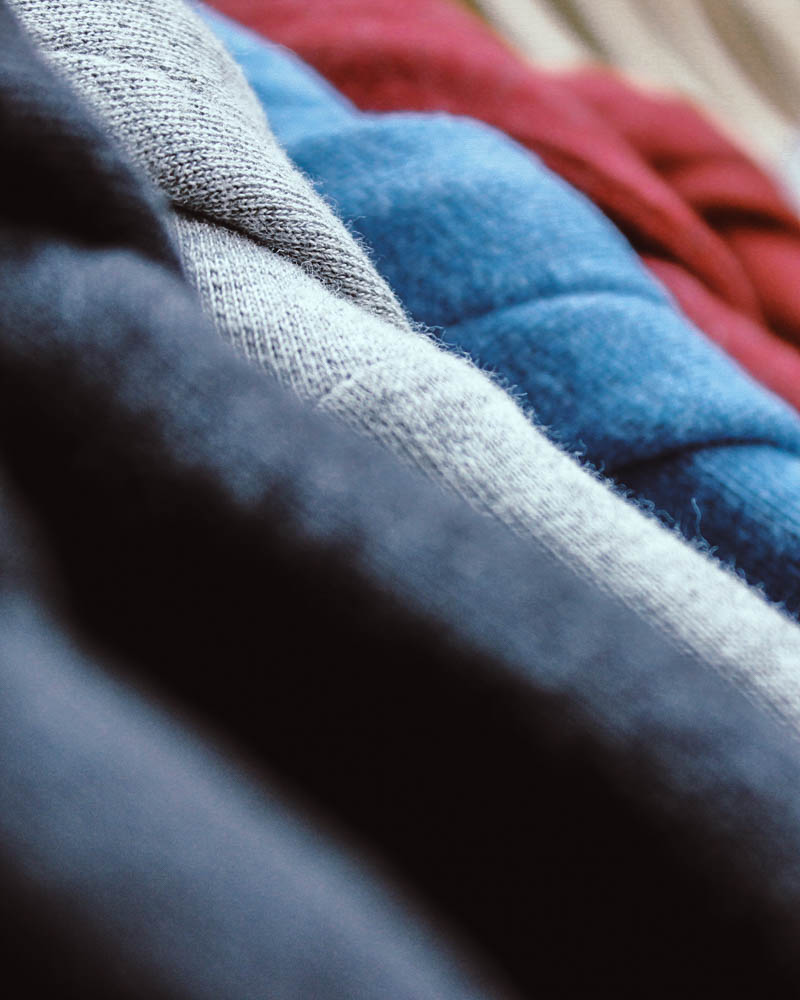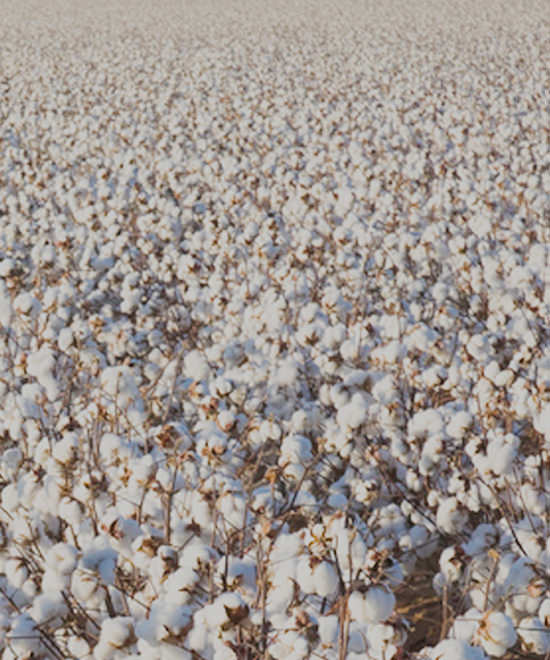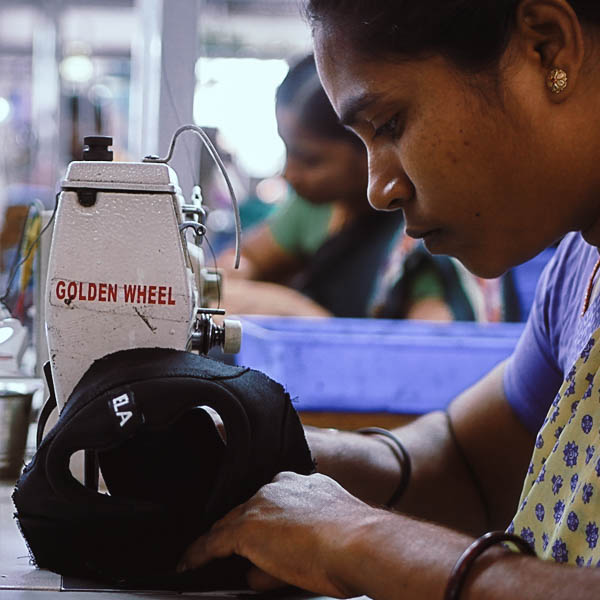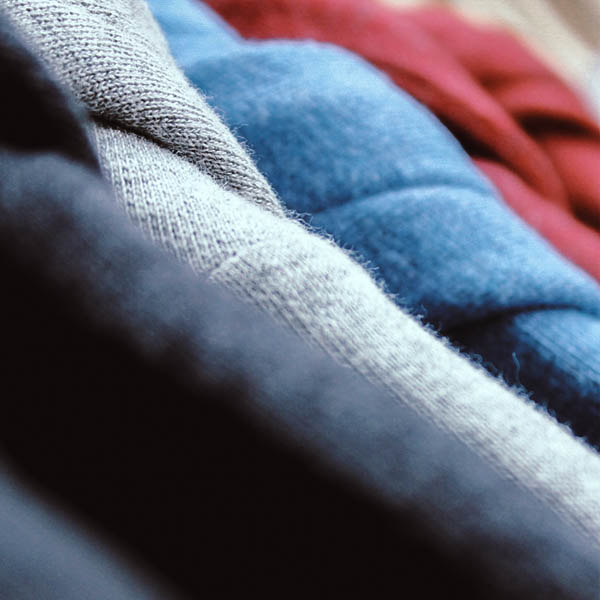
TRANSPARENCY.

OUR PRODUCER.
What is distinctive about your garment factory Purecotz?
At Purecotz, it is very important to us to create a pleasant working environment for everyone. The same principle always applies when dealing with employees, partners and customers:
Always ensure that everyone receives the maximum support and everyone is treated fairly and honestly. At the same time, we are pursuing high ecological goals: we completely dispense with the use
of conventional cotton and thus produce exclusively ecologically and sustainably.
Our goal is to persuade conventional customers to switch their production to ecological and sustainable production.
We were already able to convince a very large international group of our concept and completely switched its production to organic cotton.
How is your textile production sustainable?
There are several reasons why we can safely call ourselves sustainable textile producers.
All raw materials come from certified organic farming,we prepare our own water for the farm
and 24kw solar systems on our roof supply us with electricity.
To further reduce our greenhouse gas emissions, we also regularly plant trees.
Is MELAWEAR different from other brands that produce with you?
Working with MELAWEAR is very straightforward because we share the same values and visions. We work together for a fair and ecological textile production. Here, MELAWEAR is not satisfied with the adherence to seals and their guidelines. MELAWEAR is constantly working to create more sustainable and innovative products. For this, they are constantly developing and optimizing their products.
To what extent do you profit from the cooperation with MELAWEAR?
Due to the high level of transparency new developments of MELAWEAR, there is an added value for our company in many ways. Since 2016, MELAWEAR has been expanding its social standards along the entire supply chain. With the aim of introducing the long-term payment of „Living wages“ in the textile industry, MELAWEAR therefore pays a premium of 10% on every textile produced. Our workers gain higher financial security through this bonus and can sustainably improve their living conditions.. At the same time, we also benefit from the know-how of MELAWEAR and can thus constantly optimize our production in order to be able to work even more efficiently and sustainably. Our goal is to create a continuous cycle of materials inspired by Cradle to cradle.
What is the biggest challenge in the production of sustainable textiles?
A major challenge in the production of sustainable textiles is to reduce the use of synthetic
plastics and to find ecological alternatives. At the same time, we are still too dependent on fossil
fuels and thus limited to producing truly environmentally conscious and sustainable. However,
MELAWEAR is particularly committed here and promotes the expansion of renewable energies as well as the development of alternatives for plastics.
Adhering to the guidelines for sustainable textile production naturally generates additional costs.
MELAWEAR's business model, which
produces a small number of styles with a large quantity, enables us to meet this challenge and extend sustainability criteria.
ORGANIC COTTON.
For us, sustainable production starts with the careful selection of the raw materials. That's why MELAWEAR uses only organically grown cotton.. For the cultivation of our organic cotton we use natural seeds and renounce any chemical pesticides. The use of genetically modified plants is strictly prohibited for organically grown cotton.
The production of organic cotton requires less water than conventional cotton. Fertilization is done exclusively with natural fertilizers, so that soil fertility is preserved in an environmentally friendly manner. The valuable humus content of the soil increases and erosion is reduced.. In addition, our Indian organic cotton is gently harvested by hand.
MELAWEAR uses only Fairtrade certified organic cotton in the production of the clothing and thus guarantees the cotton farmers a fixed purchase price plus an additional premium. Independent certification bodies on site control the conditions at least once a year.
Learn more about our certifications here


TRANSPARENCY.
OUR PRODUCER.
We have a personal and friendly relationship with our producers in India, which is also part of sustainable production for Melawear. Together with our local partners, we are consequently implementing the values of Fairtrade and GOTS.
What is distinctive about your garment factory Purecotz?
At Purecotz, it is very important to us to create a pleasant working environment for everyone. The same principle always applies when dealing with employees, partners and customers:
Always ensure that everyone receives the maximum support and everyone is treated fairly and honestly. At the same time, we are pursuing high ecological goals: we completely dispense with the use
of conventional cotton and thus produce exclusively ecologically and sustainably.
Our goal is to persuade conventional customers to switch their production to ecological and sustainable production.
We were already able to convince a very large international group of our concept and completely switched its production to organic cotton.

How is your textile production sustainable?
There are several reasons why we can safely call ourselves sustainable textile producers.
All raw materials come from certified organic farming,we prepare our own water for the farm
and 24kw solar systems on our roof supply us with electricity.
To further reduce our greenhouse gas emissions, we also regularly plant trees.
Is MELAWEAR different from other brands that produce with you?
Working with MELAWEAR is very straightforward because we share the same values and visions. We work together for a fair and ecological textile production. Here, MELAWEAR is not satisfied with the adherence to seals and their guidelines. MELAWEAR is constantly working to create more sustainable and innovative products. For this, they are constantly developing and optimizing their products.
To what extent do you profit from the cooperation with MELAWEAR?
Due to the high level of transparency new developments of MELAWEAR, there is an added value for our company in many ways. Since 2016, MELAWEAR has been expanding its social standards along the entire supply chain. With the aim of introducing the long-term payment of „Living wages“ in the textile industry, MELAWEAR therefore pays a premium of 10% on every textile produced. Our workers gain higher financial security through this bonus and can sustainably improve their living conditions.. At the same time, we also benefit from the know-how of MELAWEAR and can thus constantly optimize our production in order to be able to work even more efficiently and sustainably. Our goal is to create a continuous cycle of materials inspired by Cradle to cradle.
What is the biggest challenge in the production of sustainable textiles?
A major challenge in the production of sustainable textiles is to reduce the use of synthetic
plastics and to find ecological alternatives. At the same time, we are still too dependent on fossil
fuels and thus limited to producing truly environmentally conscious and sustainable. However,
MELAWEAR is particularly committed here and promotes the expansion of renewable energies as well as the development of alternatives for plastics.
Adhering to the guidelines for sustainable textile production naturally generates additional costs.
MELAWEAR's business model, which
produces a small number of styles with a large quantity, enables us to meet this challenge and extend sustainability criteria.

ORGANIC COTTON.
For us, sustainable production starts with the careful selection of the raw materials. That's why MELAWEAR uses only organically grown cotton.. For the cultivation of our organic cotton we use natural seeds and renounce any chemical pesticides. The use of genetically modified plants is strictly prohibited for organically grown cotton.
The production of organic cotton requires less water than conventional cotton. Fertilization is done exclusively with natural fertilizers, so that soil fertility is preserved in an environmentally friendly manner. The valuable humus content of the soil increases and erosion is reduced.. In addition, our Indian organic cotton is gently harvested by hand.
MELAWEAR uses only Fairtrade certified organic cotton in the production of the clothing and thus guarantees the cotton farmers a fixed purchase price plus an additional premium. Independent certification bodies on site control the conditions at least once a year.
Learn more about our certifications here


